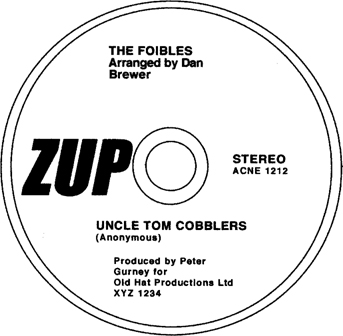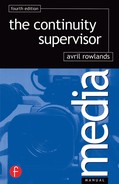Copyright is the protection the law gives to a person or organisation for something they have created. In the UK, the relevant legislation is the Duration of Copyright and Rights in Performances Regulations, 1995 (see note below). For information on US copyright legislation it is advisable to take a look at the United States Copyright Office, The Library of Congress web site (http://lcweb.loc.gov/copyright/).
The protection the law gives ensures that no one other than the copyright owners have the right to use the work unless authorised by the owner, who is thus able to charge a fee. It is particularly important that permission is obtained before any material is used in a production if that material is copyright.
In its simplest form the material could be a literary work, a painting, a photograph, a musical composition or a recorded musical performance. But such things as records, illustrated books, films and videos involve multiple copyright.
Let us take the example of a film. Copyright in a film belongs to the film maker. However, it is not as simple as that, as the film distributor may have bought some or all the rights in that film. For example, the film Heavens Above was a Boulting Brothers production, distributed to cinemas by British Lion Films and available on 16 mm for non-theatrical use from Filmbank Distributors Ltd. Before using an excerpt of this film in another production one has to trace which organisation is in a position to give the necessary permission.
Suppose a brasswear manufacturer had bought the rights to include an excerpt of Heavens Above in a corporate video called Brass because they had made the altar candlesticks seen in the film. No one, including the brasswear manufacturer, has the right to use that sequence in any other video without negotiating fresh rights from British Lion, even though they may have copied the sequence from Brass. The brasswear manufacturer does not own the copyright of the sequence, only a licence permitting them to use it in Brass.
Copyright extends for 70 years from the film being registered under Part III of the Cinematographic Films Act, 1950 (UK), or, if not registered, 70 years from when it was first published, i.e. when copies were sold or hired to the public.
Note: Prior to the 1995 legislation, the duration of copyright was 50 years. From January 1996 the new regulations came into force to bring the UK into line with European legislation. Because of this, some works which had been thought to be out of copyright (50 years after the death of the copyright holder) now came back into copyright.

Music Copyright
A commercial recording involves multiple copyright: the composers’; the performers’; the recording company’s.
